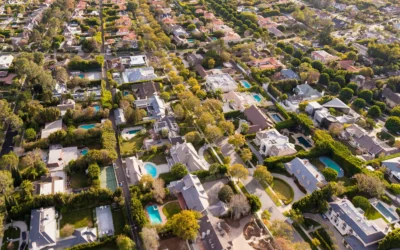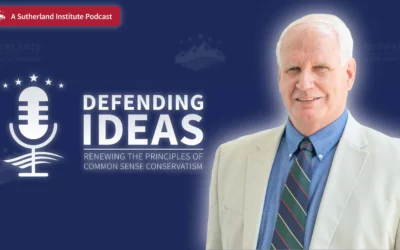
Written by William C. Duncan
February 14, 2024

Utah has not experienced many of the religious freedom controversies that some other states have. The state is not trying to force churches to pay for abortion coverage, make small businesses endorse views at odds with the beliefs of their owners, or exclude religious couples from foster care.
In the past decade, and particularly in the last few years, however, the Utah Legislature has been actively enacting protections for religious freedom across a wide range of subjects.
In 2015, the state coupled religious freedom protections with a revised anti-discrimination law. In the midst of the COVID pandemic in 2021, the state enacted legislation requiring reasonable accommodations be made for religious worship and rites in the event of a public health emergency. That same year, the Legislature directed the State Board of Higher Education to create rules allowing college and university students to participate in religious observances without being penalized.
In 2022, the Legislature unanimously approved a bill to allow students to wear religious or culturally significant attire during graduations. The next year, bills were passed that would ensure religious child welfare agencies to operate consistent with their religious missions and that allowed students to participate in school athletics without having to abandon religious or modest clothing standards.
This session, the Legislature is considering three additional bills that would advance religious freedom.
An important bill, Workplace Discrimination Amendments, would give employers helpful direction on how they can avoid creating a religious freedom conflict by specifying that they should not ask employees to do anything that is inconsistent with their beliefs.
A similar bill, Government Employee Conscience Protection Amendments, extends this same type of protection to public employees.
Beyond the scope of these bills, the Exercise of Religion Amendments would provide a broader protection. It outlines how state and local governments should avoid creating unnecessary burdens on religious exercise and gives courts direction on how to assess burdens when they are imposed. This gives important protections of religious minorities and others when unforeseen conflicts arise.
What can explain the mismatch between the relative lack of religious conflicts in the state and the increased statutory provisions aimed at protecting religious liberty? A cynic may believe the legislation is unnecessary. But it’s more likely that the state’s sensitivity toward avoiding burdening religious exercise explains the lack of conflict as well as the efforts to prevent it for the future.
The time to prevent conflicts is before they arise. A basic legal principle is that denying a fundamental right creates an “irreparable harm.” Loyalty to constitutional principles, then, means avoiding conflicts where possible. Utah’s effort to do that is a worthy endeavor.

Insights: analysis, research, and informed commentary from Sutherland experts. For elected officials and public policy professionals.

- Despite lacking many of the religious freedom conflicts that have arisen in other states, Utah has been actively working to enact protections of religious freedom.
- Over the past decade, the state has enacted key protections in the context of schools, public health emergencies, anti-discrimination laws, and child welfare services.
- This session, the Legislature is considering at least three religious freedom bills that would implement specific and blanket protections of free exercise.
Read More
Protecting property rights against government overreach
While governments can continue to regulate land use, these regulations and fees must be justified by a government interest and proportional to the effect of the development’s impact on that interest.
Do we need to care about the Utah State Board of Education?
For any Utah voters who also feel like K-12 public education is headed in the wrong direction, learning about the candidates running for a seat on the Utah State Board of Education (USBE) is a wise choice this election season.
Defending education choice the right way
Education choice has exploded in popularity across the nation in recent years. So why does it remain a contentious point of debate in some parts of the country?


